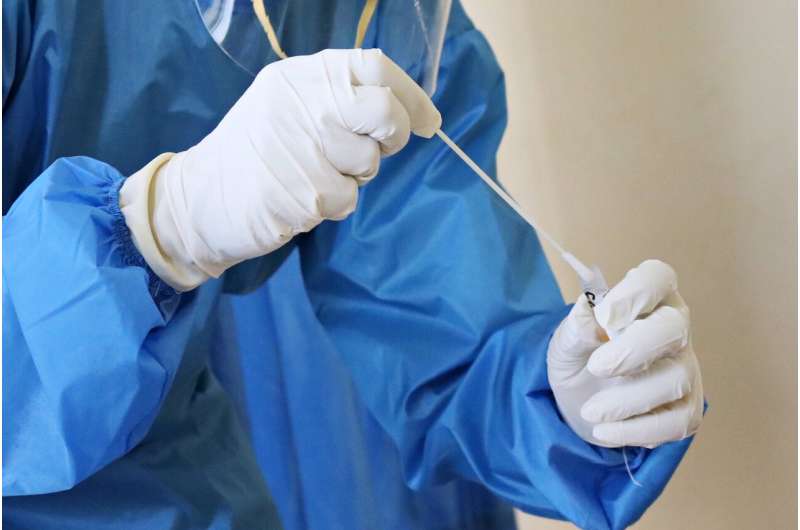This article has been reviewed according to Science X's editorial process and policies. Editors have highlighted the following attributes while ensuring the content's credibility:
fact-checked
peer-reviewed publication
trusted source
proofread
Study reveals racial disparities in COVID-19 testing delays among health care workers

At the height of the pandemic, timely access to COVID-19 testing was crucial for curbing the spread of the disease and informing treatment decisions. Studies have unveiled racial and ethnic disparities in COVID-19 infection rates, clinical outcomes, and access to treatment and testing.
However, until now, there has been a gap in research specifically examining the connection between race, ethnicity, and delayed COVID-19 testing among health care personnel.
Researchers from Brigham and Women's Hospital, a founding member of the Mass General Brigham health care system, investigated the correlation between delays in COVID-19 testing and various demographic factors among health care personnel (HCP). Their study revealed that delayed testing rates were significantly higher among non-Hispanic Black HCP and non-Hispanic HCP of other races compared to non-Hispanic white HCP.
The paper is published in the journal JAMA Network Open.
The team performed a cross-sectional analysis of testing practices among 5,541 HCP across 15 academic medical centers in the U.S. They looked at data from December 2020 to April 2022. They focused on the timing of COVID-19 testing, which was categorized as delayed (performed three days or more after symptom onset) or early (performed within two days of symptom onset). They examined these factors in relation to sex, age, race, ethnicity, education level, job classification, comorbid conditions, vaccination status and health insurance status.
While there were no significant testing disparities related to sex or age, the likelihood of delayed testing was greatest among non-Hispanic black HCP and non-Hispanic HCP of other races. Additionally, delayed testing was more likely among individuals without graduate degrees.
"Testing delays are important because they influence a person's decision to isolate and can influence the spread of infection. In our study, even when there was adequate access to testing, we still observed disparities by race," says DaMarcus E. Baymon, MD, lead investigator of the study and Medical Director of the Emergency Department at Brigham and Women's Hospital.
"If the timeliness and importance of testing is not recognized in HCP, it will continue to be a barrier that propagates the existing racial disparities from the pandemic."
Peter C. Hou, MD, Emergency Medicine, Trauma, Burn, and Critical Care physician at Brigham and Women's Hospital, contributed to the study as senior author.
More information: DaMarcus E. Baymon et al, Race, Ethnicity, and Delayed Time to COVID-19 Testing Among US Health Care Workers, JAMA Network Open (2024). DOI: 10.1001/jamanetworkopen.2024.5697



















